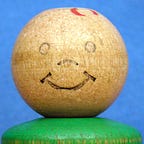Stories are powerful — we define our world by the stories we experience and those we hear from friends, neighbours, relatives. Stories build empathy — and can also tear down.
N. Scott Momaday wrote about a Kiowa arrow-maker in Way to Rainy Mountain. In that story, the arrow-maker determines that a man lurking outside his home is not from the Kiowa and that his purposes are not healthy. He does this by saying in Kiowa, “Speak your name, so I know you are Kiowa.” When the intruder doesn’t answer, the arrow-maker releases the arrow in his bow.
One of the points of the story, is that we are people made of words. We’re made from our stories and from our words: what we say to whom and why. The intruder not speaking said something to the arrow-maker. The arrow-maker speaking in Kiowa, we can only presume, said nothing to the intruder.
The arrow-maker had a theory: the person outside was up to no good. He needed to prove his theory: he spoke in Kiowa, inviting the person to announce himself.
Was he right? There’s not enough of the story here to make that call.
But it brings up a cycle that we all live daily. We’re caught in a cycle of applying the scientific method: observing, questioning, theorizing, predicting, testing and then repeating the process as needed. That’s why when science announces a theory, it can change. As the cycle repeats and we gain nuance from additional testing, something that seemed true in the beginning might have to be re-thought. New words used to describe it, new stories to test.
There’s an aphorism: the only constant is change and it’s true here as well. Very little in this world is binary. Someone who’s colour-blind might call a colour by a different name than you. Neither person is inherently correct or wrong — it depends on how their eyes are constructed. In their experience, in their story, blue and green might be the same. In yours, they might be different. If your eyes were constructed like theirs, they’d be the same.
But as humans, we love to define things, to give meaning to everything around us through words. Words matter. Names matter. Definitions matter.
When I was growing up, I never heard the names that described who I really am. It was nameless, it was whispers of disdain and confusion and incomprehension. When I got to college, the acronym was different than it is today: GLA, then LGB, and LGBT and today even LGBTQIA+ is being reconsidered. It’s hard to keep up with all of those changes, those words.
But with each attempt at naming and including, I began to realize that I’m not the only one like this. I’m not a weirdo to be othered and excluded. I’m not “just me” as I came to believe as a child — meaning completely different from the boys and girls I knew. I’m not some Muppet Gonzo, from outer space, alone and nobody knows just what he is.
I’m trans. My pronouns are he/him. There are other people out there like me and we’ve been out here for centuries, across cultures.
Naming that is powerful. It’s vulnerable. It’s not brave, or it shouldn’t be. It should simply be acknowledgement of what already is. A naming, nothing more or less.
We are each made of words, of stories. And those words matter. If someone tells you that their pronouns are they/them or ze/zir or something that seems to not match what you’re seeing: remember that very little in life is binary, it’s all in our own stories and in our own words.
